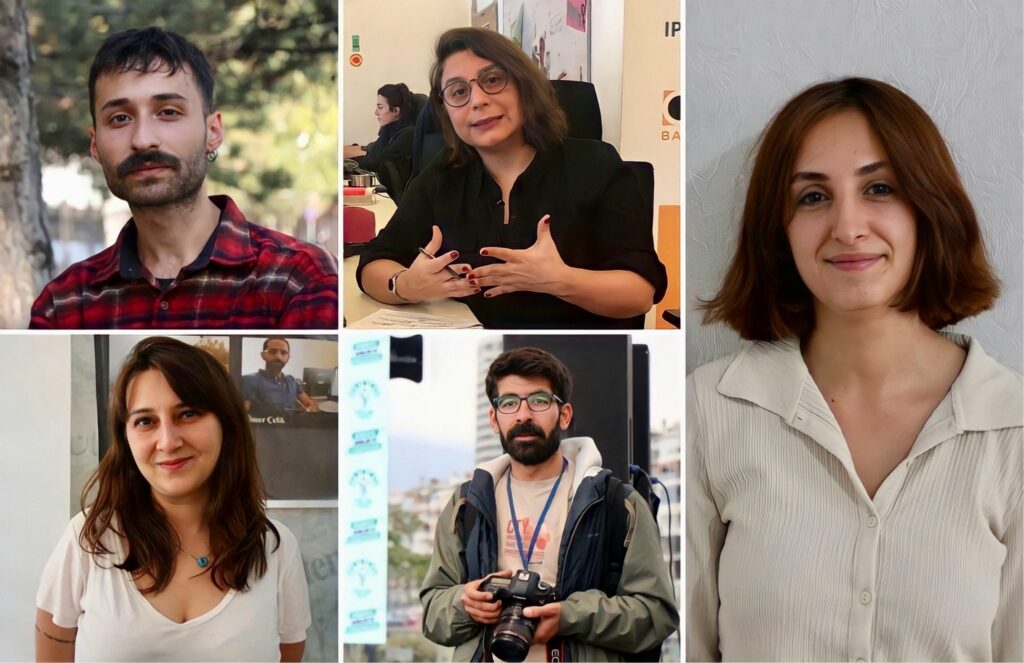Five journalists have been detained in Turkey for “targeting a public official involved in the fight against terrorism,” due to their social media posts about a judge-prosecutor couple who were involved in the investigation and prosecution of Kurdish journalists, the Evrensel daily reported.
Mezopotamya correspondent Delal Akyüz was detained in İzmir, while another Mezopotamya correspondent, Fırat Can Arslan, and T24 news website editor Sibel Yükler were taken into custody in the capital Ankara following police raids on their homes. Bianet editor Evrim Kepenek was detained in İstanbul and journalist Evrim Deniz in Diyarbakır.
The journalists were detained as part of an investigation launched by the Diyarbakır Chief Public Prosecutor’s Office.
According to media reports, the journalists were taken into custody for retweeting a news article about the replacement of prosecutor Mehmet Karababan and his wife, judge Seda Karababan, and are accused of “targeting public officials involved in the fight against terrorism.”
The Karababan couple came to public attention during the trial of 15 Kurdish journalists who appeared in court earlier this month after more than a year in pretrial detention on charges of terrorist organization membership.
During a hearing on July 11, the journalists’ lawyers demanded the recusal of judge Karababan, who was on the panel of judges hearing their trial, because it was her husband, prosecutor Mehmet Karababan, who indicted the journalists.
The court denied the lawyers’ request, but the couple was among more than 3,000 member of the judiciary who were reassigned on July 18 by President Recep Tayyip Erdoğan. The 15 Kurdish journalists were released from pre-trial detention.
The journalists detained on Tuesday had shared some posts and retweets on social media about the reassignment of the Karababan couple, which prompted prosecutors to initiate an investigation into them.
Emma Sinclair-Webb, Human Rights Watch associate director and Turkey director, announced the detention of the four journalists in a tweet, adding, “What’s the crime? First signs are it’s to do with reporting and tweeting on trials of other journalists and rotations of prosecutors and judges.”
Another day and police detain 4 more journalists including @sibelyukler from @t24comtr and @kepenekevrimm from @bianet_org What’s the crime? First signs are it’s to do with reporting & tweeting on trials of other journalists and rotations of prosecutors and judges 🤦🏻♀️ https://t.co/4arjuxWavf
— Emma Sinclair-Webb (@esinclairwebb) July 25, 2023
It is common for journalists in Turkey, which has a poor record on freedom of the press, to face threats, physical attacks and legal harassment due to their work.
Rights groups routinely accuse the Turkish government of trying to keep the press under control by imprisoning journalists, eliminating media outlets, overseeing the purchase of media brands by pro-government conglomerates and using regulatory authorities to exert financial pressure, especially after President Recep Tayyip Erdoğan survived a failed coup in July 2016.
According to Reporters Without Borders (RSF), 90 percent of the national media in Turkey, which was ranked 165th among 180 countries in the RSF’s 2023 World Press Freedom Index, is owned by pro-government businessmen and toe the official line.

